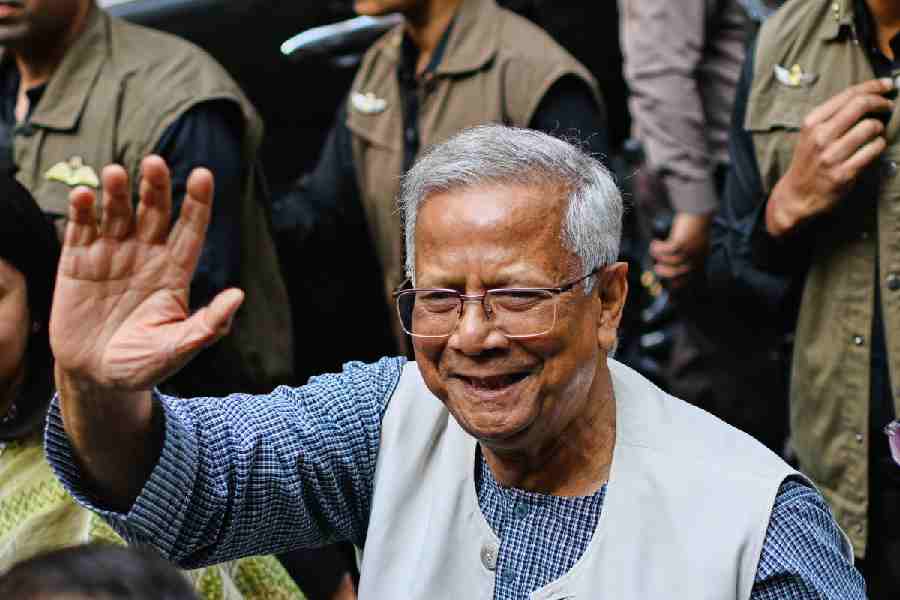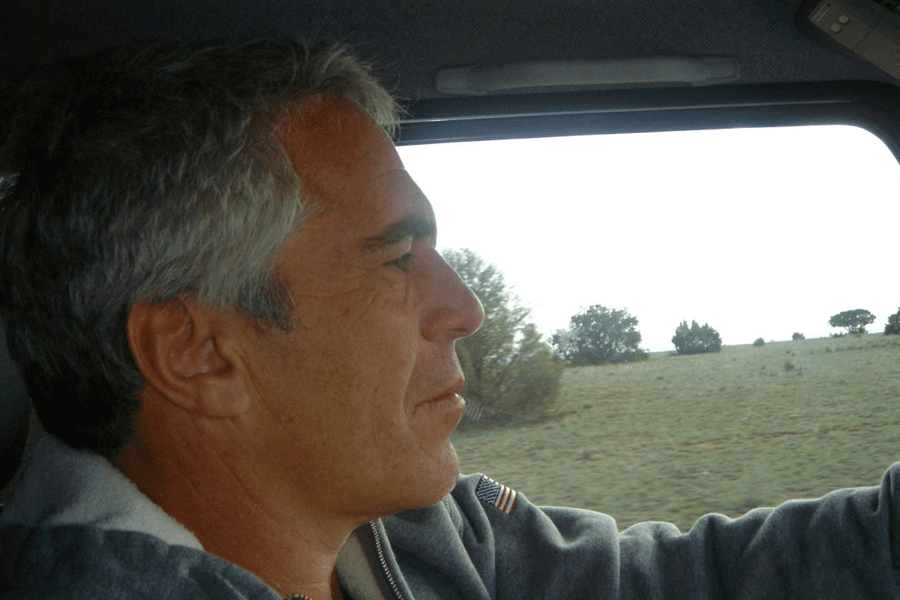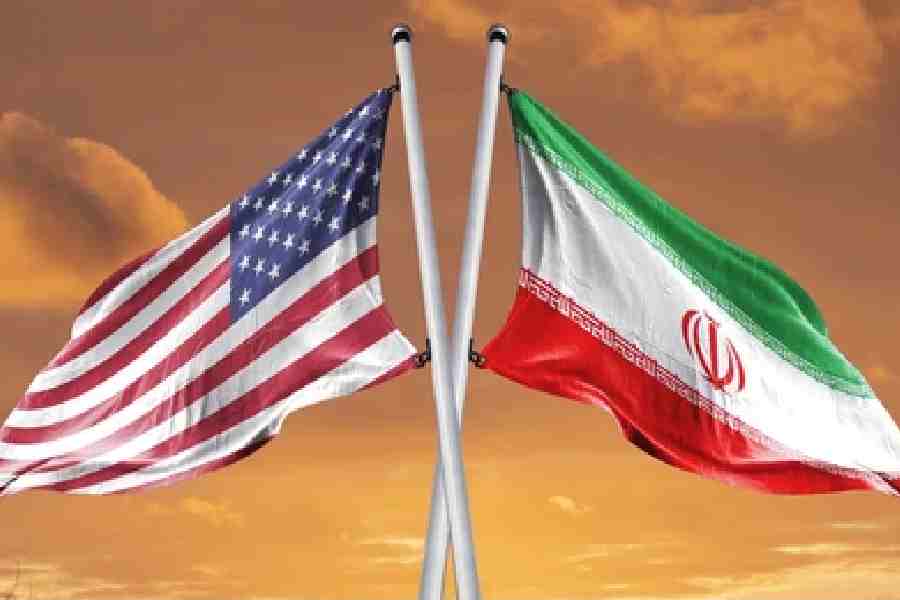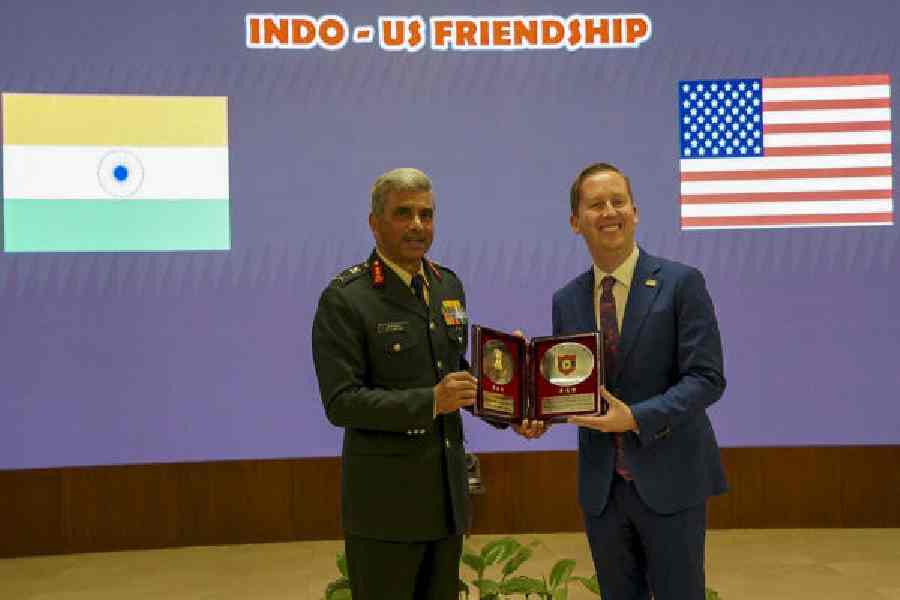 |
I am up to my ears in coffee when Deepti Naval offers me a cup. “I will have a normal one, what about you,” she asks even before she settles down in the low-backed wooden chair inside the elegant VSB Cafe in a south Delhi mall. When I tell her that I’d downed a few cups while waiting for her, she glances apologetically at her watch. Clearly the city — with its heat and vast distances — has been tripping her up.
“How do you people live in this city — the heat is absolutely killing,” she says, shaking her head. The picture she presents belies her words, though. Dressed in full-sleeved dark blue top and grey trousers with a rainbow-coloured silk stole wrapped around her neck, her hair neatly rolled into a bun at the back, she looks powder fresh.
I remind her that it was because of a role in a film set in Delhi that she is most remembered to this day. It was as Neha — or Miss Chamko, as her suitors called her — in Chashme Buddoor that she caught the imagination of India’s cinema-going public. “But then the story couldn’t have been set in any other city. Teasing girls and making up stories about their imagined lovers is a very Delhi thing,” she retorts with a twinkle in her eyes.
From the ebullient Miss Chamko — a name that is bestowed on her because she sells a detergent called Chamko — to the girl next door in Katha, from the silently suffering mother of a teenaged son in Leela to an irritable middle-aged widow-turned-seductive cougar in Freaky Chakra, there is hardly a role that she hasn’t portrayed on the screen. And apart from her mainstream roles, she has won critical acclaim for her work in parallel cinema — including a recent award at the Madrid film festival for Firaaq.
But when I tell her that one of the most watched Indian film clips on YouTube is a lovemaking scene between her and Sunil Rao in Freaky Chakra, she lets out an incredulous laugh. “Oh God, when will we Indians grow up,” she says, rolling her eyes. “That certainly is not the way I would like to be remembered. There is a whole body of my work spread over decades,” she says. Naval goes on to explain that the scene is an author’s imagination in the film. But she hastens to add that she is proud of the film.
Naval has been in the industry for over three decades, but the years have not taken a toll on her. Her makeup-less, unlined face is radiant, with only a few silver strands on her temples providing a clue to her age — which Naval doesn’t want to divulge. “I am young because of my spirit. I don’t feel my years. Maybe my body reflects that,” she says.
I tease her a bit, and tell her that she looks young enough to play Miss Chamko again. She smiles broadly. Is there somebody in Bollywood today who can play the kind of roles that she essayed? “Vidya Balan,” she replies promptly. “I think she has it in her and the looks too.”
But Naval is more than a pretty face — there’s hardly a creative field she’s not interested in. Painting, writing, photography, film direction... you name it and she has done it. “But I couldn’t sing,” she says when I mention her many accomplishments. “I wish I’d been a singer. I would have been happiest doing just that. Singers are so uncomplicated,” she adds, looking away as if she was reminded of somebody or something from a distant past.
Growing up in Amritsar, where her father was a professor of English literature, Naval always knew what she wanted to become, but she kept it a secret from her family. “I used to watch Madhubala and Meena Kumari and dream that I would be on the screen one day with hundreds of people watching me. But I was scared of mentioning it to my parents as I knew that they would oppose it,” she recalls.
Her world opened up once her Punjabi family migrated to the United States in the early 1970s. Her father worked as a librarian by day and a watchman at night and went on to complete his PhD at the age of 64.
“He always wanted to do something adventurous and going to a new country without anything was his way of challenging himself and also providing us with a new life,” she says. “He had the greatest influence on my life. My sense of adventure and free spirit come from him,” she says.
She enrolled at Hunter College in Manhattan in New York to major in painting, while hosting a Hindi music programme Rang Mahal for a local radio station. “I used to interview many Indian film industry people who were in New York and that only strengthened my resolve to become an actor,” she says.
Finally one day she told her family about it. There were fireworks, but her father, seeing her passion, stood by her and tilted the family scales. “He probably understood that I was like him, restless with the zest for life, always wanting to do something more than the ordinary,” she says. She returned to India in 1979 and made her debut with Junoon.
Naval is a bit of a free spirit even now. She is single, though her name is occasionally linked to someone. There is a faint tincture of disapproval when I bring up the subject of the men in her life, but her eyes light up when I mention Vinod Pandit, her fiancé for eight years before he died of cancer in 2002. “He was full of life and he had a great sense of adventure — like my father,” she says. In his memory she’s started the Vinod Pandit Education Trust for the Girl Child to educate underprivileged children.
There have been other men, including director Prakash Jha, her husband for a brief period. Jha and Naval continue to be close, and they are also bringing up their teenage daughter together, although she lives with her father. In fact, besides Anurag Kashyap, Jha is the only other director she would like to work with in a film.
Naval divides her time between Mumbai and New York, where her parents still live. But she stresses that she doesn’t feel any attachment to either city. “I am more of a mountain person. I can spend months together in solitude among the hills and still be completely happy with myself. My friends sometimes say that I have become a bit of a recluse, but I am very comfortable in my skin,” she says.
It is this love for solitude that has repeatedly dragged her to the Himalayas, with only her Canon EOS 50 for company. A trip to Ladakh led to an exhibition, In Search of Another Sky in 1998. In 2002, she went on a solo trek on the frozen Zanskar river and came up with another exhibition, Images From A Frozen River.
Doing things differently comes naturally to Naval. Now she is devoting time to direction. Do Paise Ki Dhoop, Chaar Aane Ki Baarish — based on a relationship between a gay song writer and an ageing prostitute (played by Manisha Koirala) — is ready for release. She has also written and produced the film. “I hope people like it,” she says.
She is also working on two books for Amaryllis publishers — a collection of poetry and another of short stories. “As always you can expect something fresh and a slice of life from my point of view,” she says.
One of these days — “give me at least two years” — she will be out with an autobiography too. “I will be frank, but I will not be conscious of the fact that it has to be sensational or anything like that. I will share with the world what I want to share,” she says.
But meanwhile, there’s her art. “I will paint even when I have one foot in my grave; I can’t say the same about acting,” she says with a chuckle. Naval’s favourite artistes include Anjali Ela Menon, Jatin Das and Nicholas Roerich.
But if there is one real life character that she wants to play on the big screen it’s painter Amrita Shergill. “Being a painter myself, I thought I would have easily played that role. But it never happened,” she says.
The screen character that comes closest to her is Chaitali of Leela. “She is full of contradictions and an enigma. I could identify with her,” she says. I ask if anybody understands her completely, and she replies in the negative. What about the men in her life? “They are still guessing about me,” she says — and gets up, laughing. The interview’s over — on that “very good note”, she says.
I wonder if I should drink another cup of coffee to drown my sorrows.










